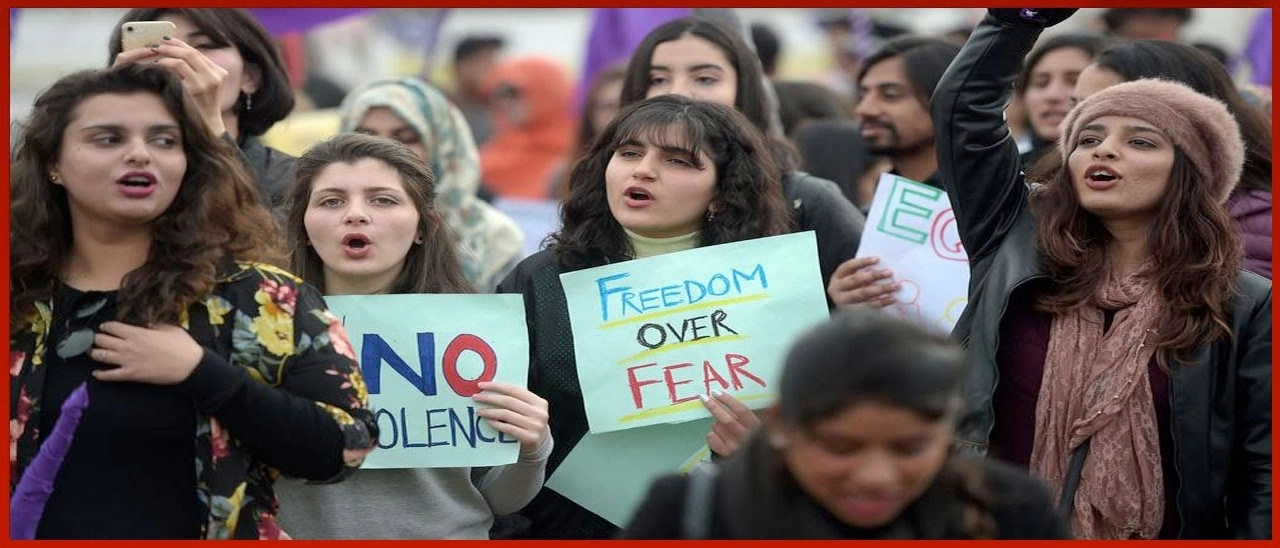“I never felt safe in public places,” says Azra, voicing the concern of countless women in Pakistan. Harassment in public spaces has surged in recent years, with disturbing incidents underscoring the risks women face daily. On Pakistan’s Independence Day 2021, shocking events highlighted this issue in Lahore, when a famous female TikToker was assaulted by hundreds of men at a popular tourist site; while in Islamabad, a woman accompanying her husband faced harassment by hundreds of men at Faisal Mosque. Such incidents have ignited debate on public safety and social attitudes towards women.
Harassment is any unwanted behavior that infringes on a person’s sense of dignity and safety. In Pakistan, it often manifests as pinching, touching, blocking pathways, making sexual comments, and using obscene gestures.
The impact of such harassment is profound. It limits women’s ability to travel alone and freely, making them feel unsafe in public areas. Statistics from the Women’s Safety Audit Report of 2017, conducted by Aurat Foundation, reveal alarming realities. The report shows that 82% of women commuters in Lahore experience harassment at bus stops, with younger women (aged 20-29) particularly at risk.

2021, Ayesha Akram, a social media celebrity, was sexually assaulted
Creating a safer society for women in Pakistan’s public spaces is not just about improved infrastructure but a shift in social attitudes. Key steps for implementing gender-sensitivity is to start inculcating equal gender rights in schools, raise public awareness through national campaigns, enforce harassment laws with visible consequences, and training police to handle cases sensitively. Community engagement and bystander training can empower people to intervene for making Pakistan a safer place.






